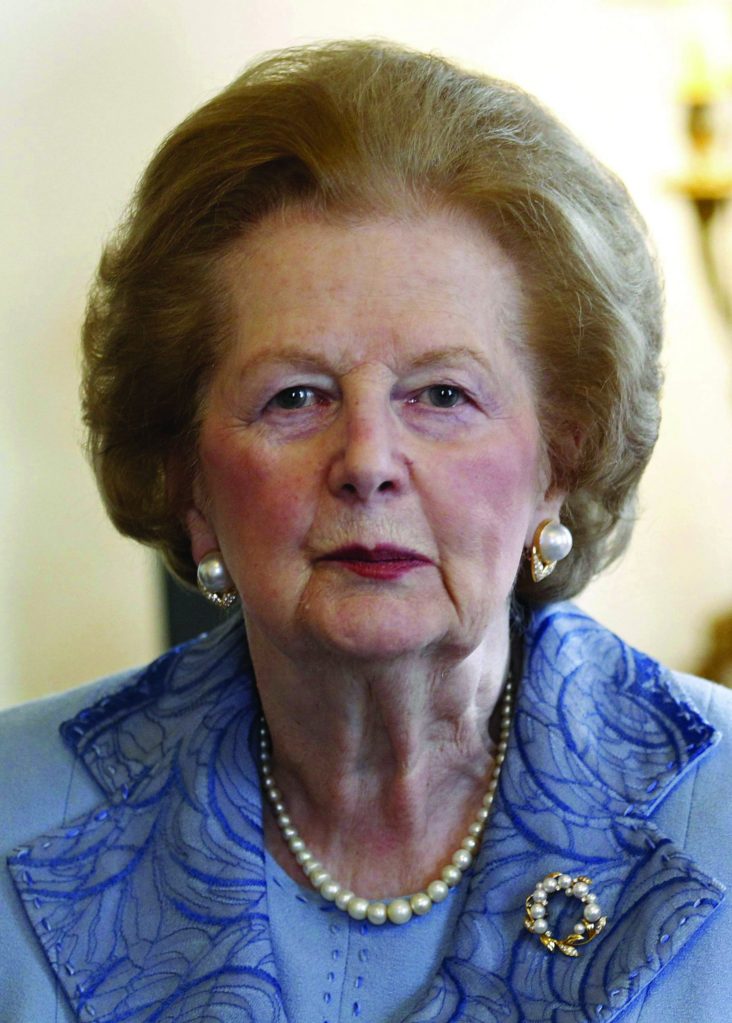Millions loved her, millions more hated her; few could ignore her. When former British Prime Minister Margaret Thatcher died of a stroke at the Ritz Hotel in London, on April 8, it knocked the rest of the news off the bulletins for days.
It was the end of a life that made waves from Brussels to Africa with an attitude that could both divide and inspire. When she joined Parliament in 1959, the grocer’s daughter from Grantham was one of the few women in a legislature that resembled a gentleman’s club. In her years in Westminster she overcame prejudice against women and people from humble backgrounds.
“You turn if you want to. The lady’s not for turning,” said Thatcher in one of her most famous speeches, in 1980.
The Iron Lady—as the Russians dubbed her—criticized Europe, sacked her ministers, went to war with Argentina, poured harsh words and legislation on the unions and scorned Africa’s biggest liberation movement.
Thatcher called the African National Congress (ANC) terrorists, she refused to recognize the party and cast doubt on its ability to govern. Despite this, according to Thomas Wheeler, a research associate at the South African Institute of International Affairs, Thatcher found apartheid unacceptable, even though she didn’t believe in sanctions. Zambian president, Kenneth Kaunda, clashed with Thatcher over apartheid at a Commonwealth conference in Lusaka, but the two ended up dancing the night away in the ballroom.
Loading...
“We acknowledge that she was one of the strong leaders in Britain and Europe to an extent that some of her policies dominate discourse in the public service structures of the world,” the ANC was gracious enough to say.
Thatcher also had little time for the liberation forces of Zimbabwe, then Rhodesia. In 1979, Thatcher banned her envoy from meeting with ZANU leader Robert Mugabe; refusing to talk with someone she regarded a terrorist, until he became Prime Minister. At the time, Britain was mulling over whether to recognize the interim government of the late Bishop Abel Muzorewa. His was the first black-led administration in Zimbabwe, but nationalists saw it as a puppet regime.
Many Rhodesian British passport holders helped vote in Thatcher in the May 1979 election in the hope that it would postpone independence. Ironically, it was Thatcher who pushed through the Lancaster House talks in London, later that year, that ushered in independence on April 18, 1980—the night when the Union flag came down for the last time and Bob Marley played to jubilant thousands at Rufaro Stadium in Harare.
Two years later the Iron Lady was rusting. Her social welfare cut backs angered the poor and led to riots in 1981; by 1982 she was the most unpopular British Prime Minister in history. When British forces repelled the Argentinians from the Falkland Islands in 1982, Thatcher rode a wave of popularity to a landslide victory in 1983.
On that night, covering my first election, I asked one of the more experienced journalists what this victory meant.
“Fewer and fewer people are going to get richer and richer,” he had said on that night.
So it was. Thatcher borrowed free market theory from the Chicago Business School to turn Britain from a dowdy backwater, laden with regulation and exchange controls, into a dynamic capitalist economy. When she deregulated the financial markets of London in 1986, it made fortunes for the dealers and drew capital and expertise from around the world.
On the way, Thatcher crushed the trade union movement, including a victory over the powerful National Union of Mineworkers in 1985, the union which had brought down the Ted Heath government in the early 1970s.
“If you want to make an omelet you have to break a few eggs but she picked up the shells and smashed them against the wall,” said her former opponent, former Labor leader, Neil Kinnock.
Unrest over the growing inequality of wealth and a riot over a highly unpopular Poll Tax in 1990 sealed Thatcher’s fate and by the end of the year her cabinet colleagues had ousted her in favor of John Major.
In death, Thatcher may have won over many sympathizers from Africa. Thousands of British people organized parties to crow over her death and many people on this continent are likely to frown upon that.
Thatcher was cremated after her funeral on April 17, at St Paul’s Cathedral in London.
Loading...
